Most politicians try to avoid controversy. Donald Trump actively seeks it out. He needs it if his young presidency is to survive.

That’s because no matter what you think of his politics, by any objective measure Trump hasn’t actually accomplished much during his first eight months in office.
His approval rating is at historic lows for any president this early in their term, even with a Republican majority in Congress he has passed virtually no meaningful legislation, and the list of promises not kept (border wall, health care reform, tax reform) is long and growing. Even the job growth numbers that Trump likes to tout as a huge success, are actually at their lowest level in seven years.
WATCH: NFL player brought to tears speaking about decision to protest

No wonder the president continues to go out of his way to whip up a frenzy. He needs a constant boogeyman to keep the base happy, fired up and scared. These days, a simple diversion isn’t enough, not in such a rapid-fire news cycle. He needs sustained anger.
Enter, Trump’s feud with the NFL and its players.The president manufactured outrage with remarkable speed, on his own terms, seemingly out of the blue.
It was more than a year ago, while Barack Obama was still president, that the San Francisco 49ers Colin Kaepernick first took a knee during the national anthem to shine a light on inequality and systemic racism.
At the time candidate Trump didn’t tweet anything. In fact, the only thing Trump tweeted about the NFL in 2016, was a complaint that games would take away ratings from presidential debates.
In one single interview with radio station KIRO, Trump suggested Kaepernick “should find a country that works better for him,” but it that’s pretty much all he said.

Get breaking National news
Then came the president’s Friday rally in Alabama.
As Trump branded any player who kneels during the anthem a “son of a bitch,” he immediately made the controversy about himself.
He tried to strip away the original meaning of the protest, to frame it as a battle about patriotism, making it a “with us, or against us” debate.
Trump had to know it would be a rallying cry for his base.
After a week in which Trump threatened to “totally destroy” a country of 25 million people, after a trove of fresh stories related to the Russia probe dropped, as three million U.S. citizens in Puerto Rico sat in the dark, and as stories emerged about his son-in-law’s use of private email for White House business, Trump managed to have the whole country talking about something else.
Like clockwork, when things turn bad, Trump turns to this strategy.
He still loves to relitigate an election that took place more than 300 days ago, talking and tweeting about “crooked Hillary” as though he’s running against her to this very day. It’s an easy way to keep his base in a fighting mood.
Of course, his supporters don’t see it that way.
Trump has done a masterful job of convincing them he’s the victim of a broad conspiracy driven by the media, Democrats, liberals, or pretty much anyone who questions the job he’s doing.
It’s much easier for the president cast himself as a man against the world than to live up to the fact that he is not living up to expectations in any measurable way.
Trump’s campaign fundraising emails are a pretty good barometer of where things are at.
On Sept. 15, the campaign sent a note to supporters blaming the media for “trying to crush support for the wall.”
For the record, earlier that week Trump himself suggested the planned border wall with Mexico might end up being just more of a renovation to the existing fence, assuming he found funding for it.
The wall flip-flop hurt Trump badly. Social media was flooded with pictures of supporters burning their red Make American Great Again hats. Conservative firebrand Ann Coulter, who was an early and fervent supporter, began calling Trump out for “all talk, no action” because she, like many others, isn’t getting what she voted for.
On July 31, Trump’s email blast to supporters claimed “Liberals don’t want the swamp to drain. They thrive off of the swamp — and they will do everything in their power to keep it alive,” before pleading with donors to contribute to the campaign warning “We must end the month STRONG.”
Trump is quite literally fundraising off fear.
While the tactic isn’t exclusive to him, it’s rare for a president to actually speak (and tweet) that kind of language, let alone do it almost daily.
This has been Trump’s strategy from Day 1. Morphing from an easy way to get noticed when he was one of 16 Republican presidential candidates, to a way to deflect the worst blows suffered during the campaign and his presidency.
Trump has learned to generate so much controversy that one day’s news cycle paves over the next, allowing him to slip away without consequence.
Within a week, the feud with NFL players will probably be overwritten by something new, but still trotted out when needed.
That’s the game Trump knows how to play best.
There’s a natural tendency for politicians to try to change the channel when they’re in trouble. Trump has ripped off the dial and thrown away the remote.
Without division and distraction, voters would be left to look at everything else that’s happening.


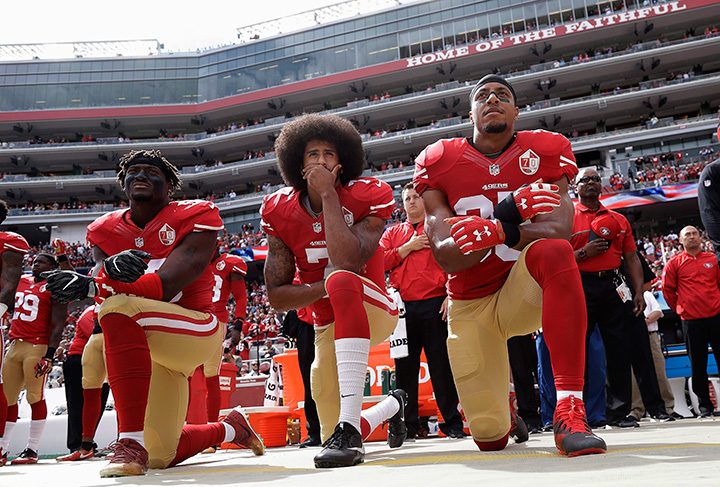










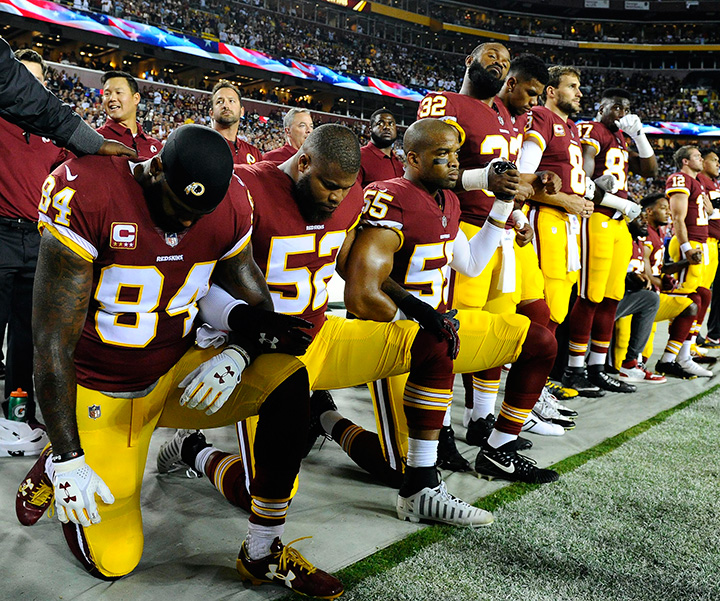

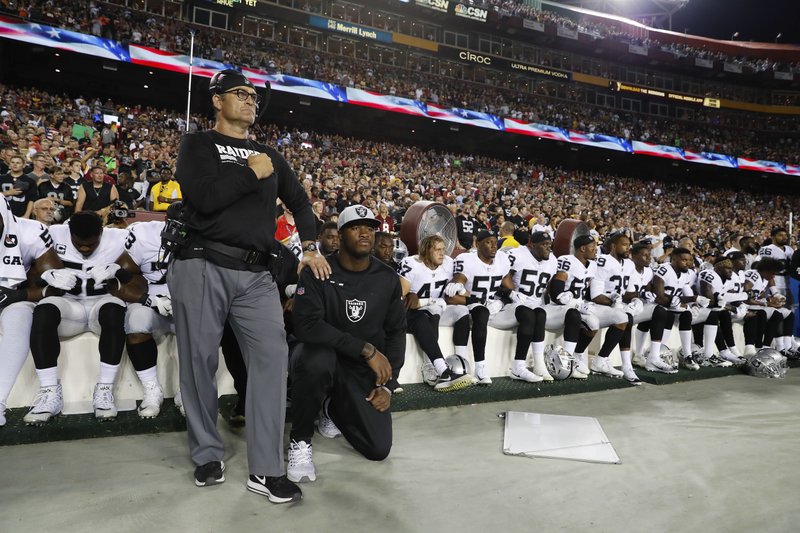







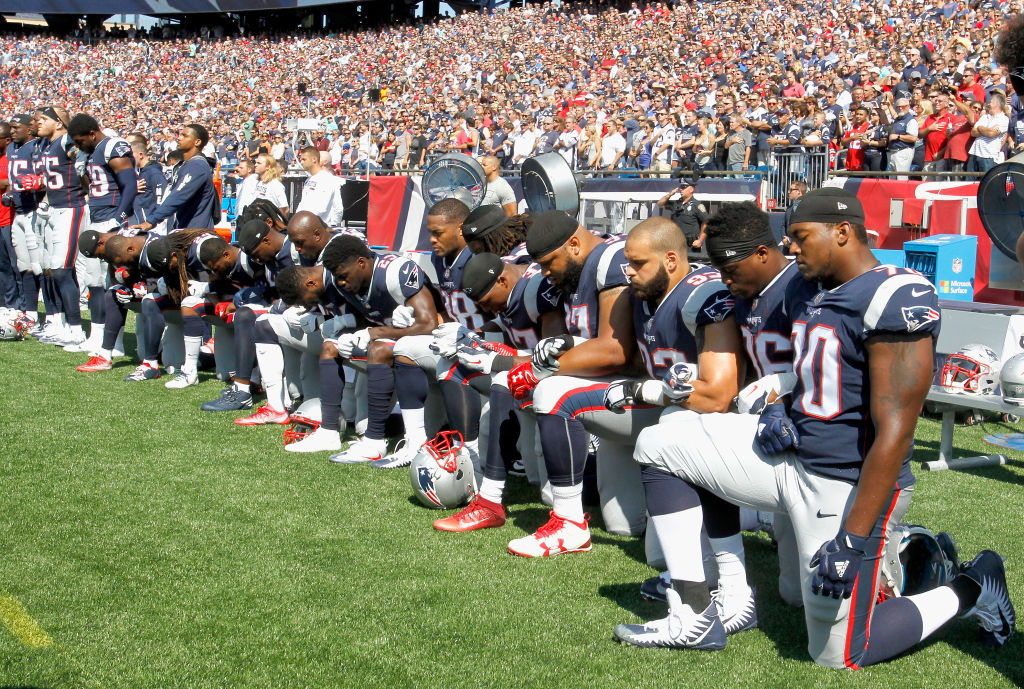



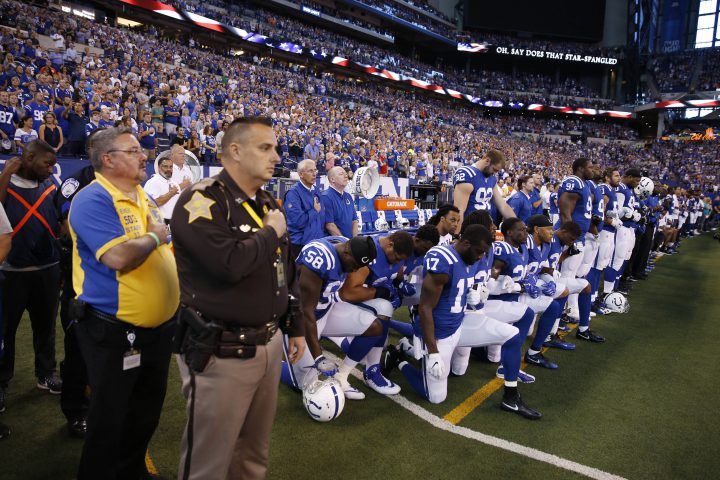
Comments
Want to discuss? Please read our Commenting Policy first.